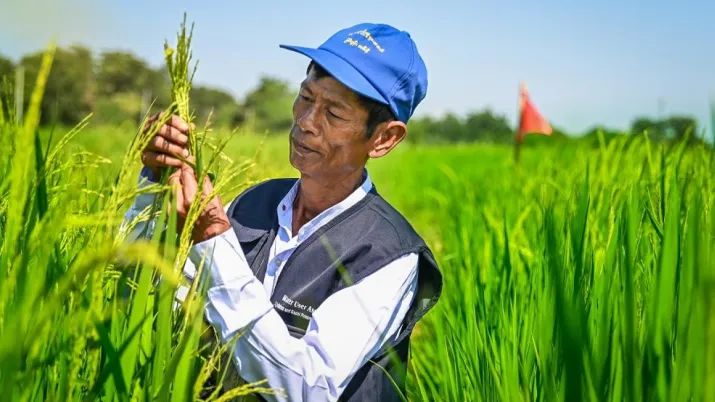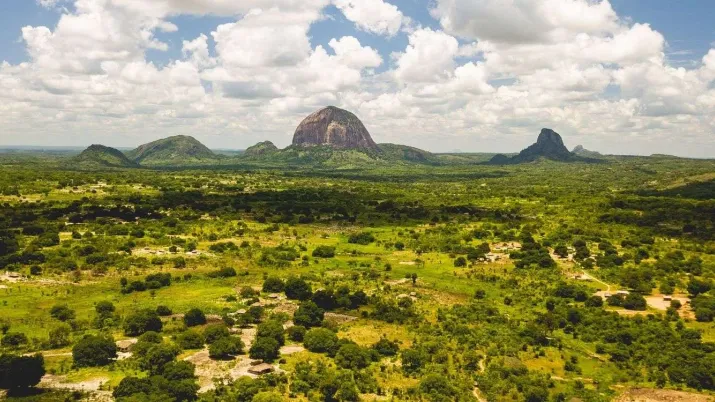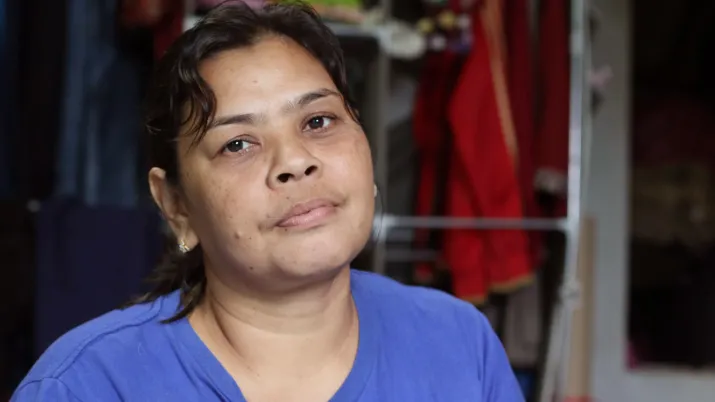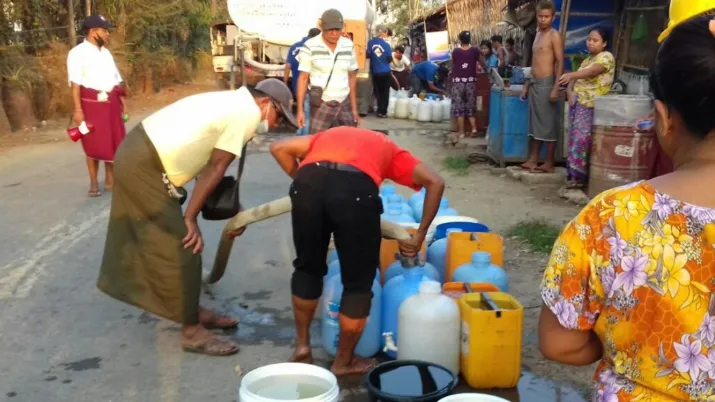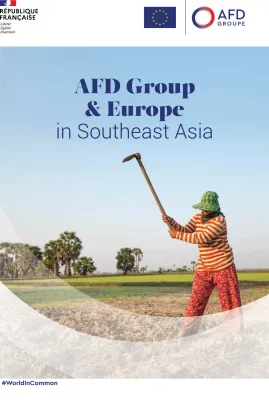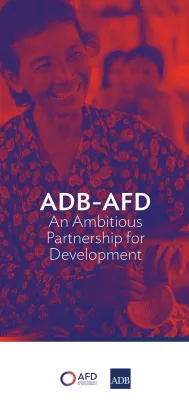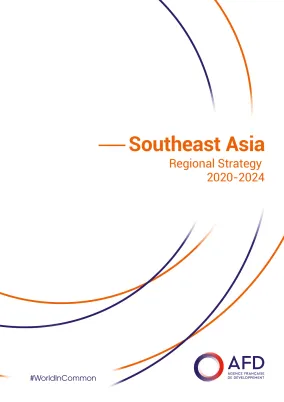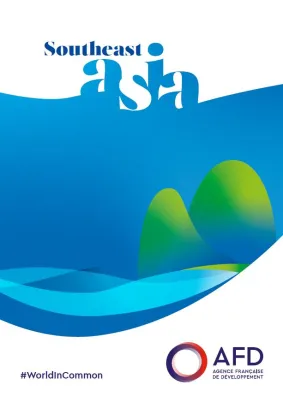Share the page
Myanmar
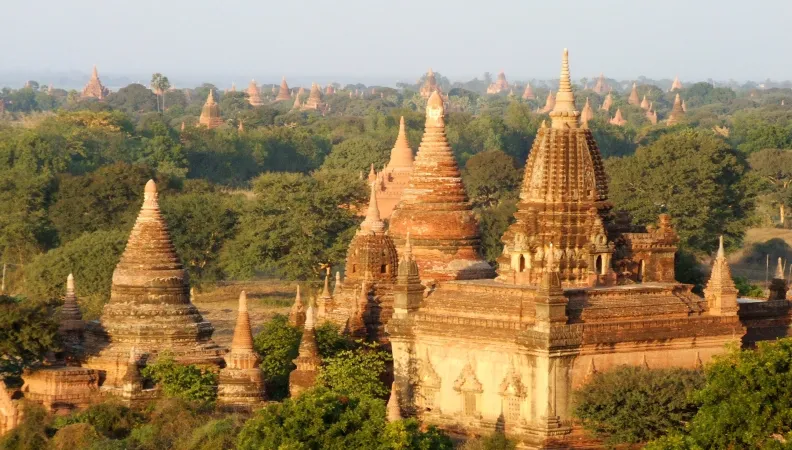
A large, predominantly rural country very rich in natural resources, Myanmar holds a strategic geographical position between the Indian subcontinent, China and Southeast Asia. Since 2012, Agence Française de Développement (AFD) has been supporting the country on its path towards sustainable and inclusive development through operations in the sectors of energy, urban development, water resources, and health.
Due to the country’s unstable political conditions, AFD Group’s activity is limited to supporting civil society in Myanmar. Alone, or with its partners (primarily the European Union), AFD Group is contributing to projects on food security, health, and energy. In addition, Expertise France (in the context of a program called L’Initiative) is implementing several ongoing projects in Myanmar under the Global Health Fund.
Context
The largest country in mainland Southeast Asia, the Republic of the Union of Myanmar shares land borders with Bangladesh, China, India, Laos and Thailand. It is bordered by the Indian Ocean in the south (Bay of Bengal and Andaman Sea), with around 2,000 km of coastline. This favorable geographical position places the country at the crossroads of the three dynamic markets of India, China and ASEAN.
With GDP per capita at $1,469 in 2020, the country remains in the LDC category and almost 25% of the population lives below the poverty line.
Modest grounds for potential economic growth were undercut by the Covid-19 crisis and, subsequently by the military coup on 1 February 2021. Development activity has since all but ground to a halt.
AFD started operations in Myanmar in 2012. It initially focused on crisis recovery, before moving towards green and inclusive growth. Following the military takeover in 2021, AFD has refocused its activities on capacity building for local civil society working to support and assist the livelihoods of the most vulnerable people.
Our approach
AFD AND MYANMAR: standing by the people of Myanmar by supporting the projects run by civil society organizations
Implemented by a civil society partner, the project “Capacity Building for Civil Society Organizations (CSOs)” aims to contribute to strengthening the response capabilities of CSOs in Myanmar for the needs identified at a time of crisis. Working with local partner associations, our partner has developed a multi-sectoral approach over the years (education, food security, nutrition, health, protection, and shelter materials along with other needed items).
Given the current situation in Myanmar, local CSOs are best able to provide swift assistance geared to the needs identified.
The project aims to strengthen the response capabilities of local CSOs (through training and the provision of suitable tools), and develop networks among them. In the long term, these activities will improve the effectiveness of our response to the needs of CSOs.
They will also lead to a harmonization and sharing of good practices between the beneficiary CSOs in Myanmar, enabling them to operate autonomously. Throughout the execution of this project, six CSOs will be supported in the implementation of micro-projects that are expected to reach about 5,000 people.
Implemented by Solidarités International, the project “Training in Sustainable Agriculture and Capacity Building to Improve Livelihoods” aims to address the challenges of socioeconomic isolation and food insecurity facing people, with a specific focus on young people and women.
In partnership with a local organization specialized in vocational training and capacity building for young people and community organizations, the project addresses issues such as sustainable agriculture, improving agricultural value chains, and supporting small businesses. Through this initiative, the project seeks to build the capacities of the local partner through training based on innovative and climate-resilient farming techniques.
In addition, the project aims to improve the facilities of the training center by building a training room and an accommodation facility. It will thus promote entrepreneurial or cooperative initiatives that facilitate the professional integration of women and young people.
Implemented by Première Urgence Internationale, the project “Improving Livelihoods and Resilience” aims to strengthen the economic resilience of vulnerable households. The project is based on a multi-sectoral operation, which aims to improve the nutrition of people affected by the crisis through integrated activities for food security, nutrition, and WHS (Water, Hygiene, Sanitation).
The project promotes a crosscutting approach through training, covering issues such as gender and leadership.
Implemented by GRET, the project “Improving the Resilience of Rural Households” aims to build the resilience of rural households in a context of multiple crises, including the climate crisis.
Building this resilience involves assisting producers with an agroecological transition of their farming practices, which will make them more self-sufficient. Similarly, GRET is supporting and strengthening two microfinance institutions in Myanmar.
This will enable them to continue to provide financial services for family farms and support their development.
In the field
News & Press Releases
COMBO+: Stopping Net Biodiversity Loss in Six Countries in Africa and Asia
Published on July 6, 2021
Publications & Media
Key figures
-
11 CSO projects financed since 2012
-
€5.6 million provided to projects led by the CSOs
-
5 provinces covered by the projects

